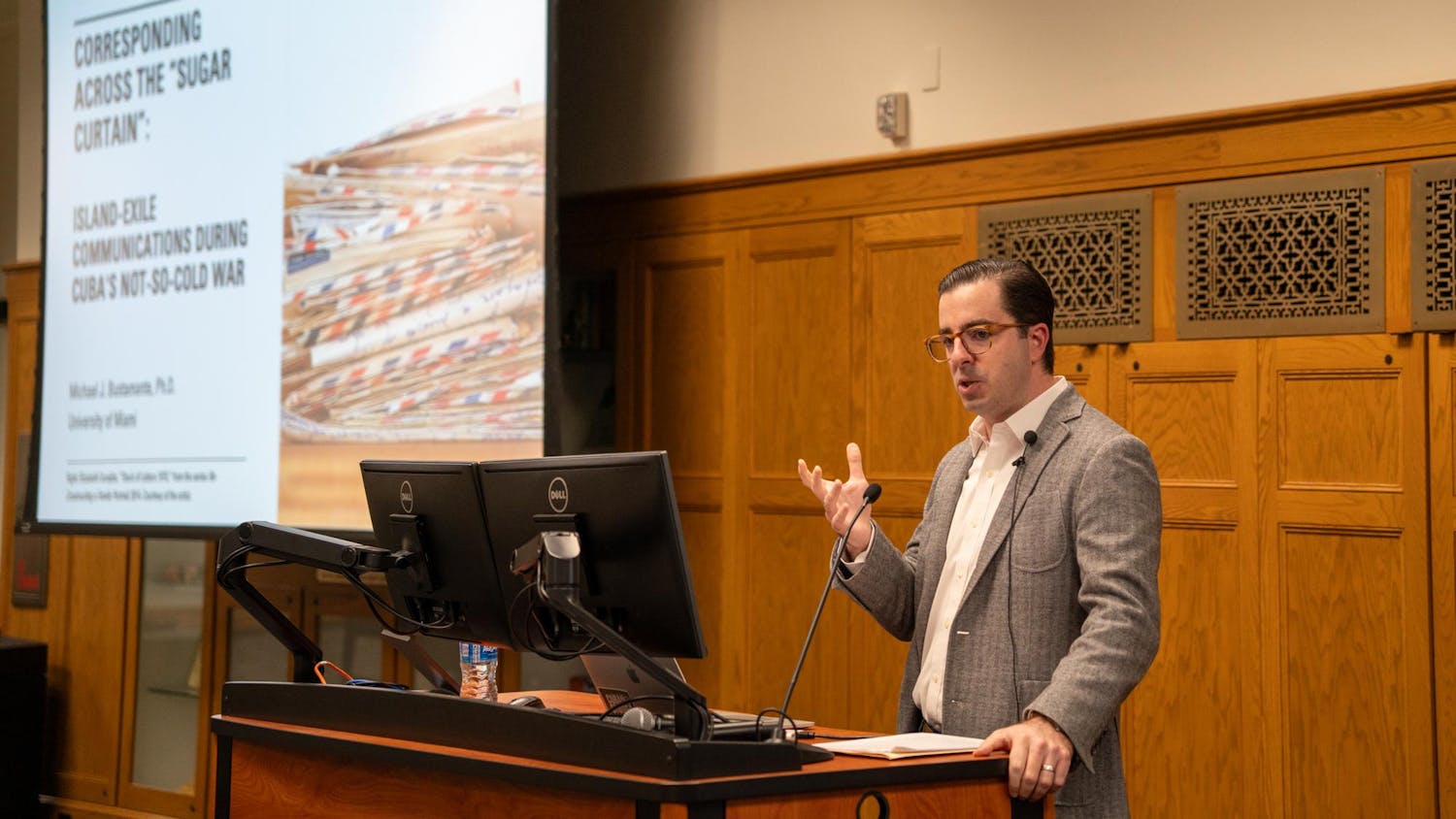Labor Day will officially kick off the American fantasy football season in 2009, and no matter where you are this weekend you will be within earshot of a conversation about somebody's fantasy draft.
Estimates are shaky, but the numbers floating around the Internet suggest that 35 million Americans will play fantasy football this year - around a tenth of the population of our country.
Before economists can calculate how much work time and productivity is lost to fantasy sports this year, I will take up the mantle of defending fantasy football. What do economists know, anyway? Haven't they already been globally outed as a sect of misguided soothsayers who possess far too much of the public spotlight?
First of all, the fact that 35 million people may play fantasy football this year is greatly relieving to me personally. I used to have to hide my addiction to fantasy sports as if I were concealing track marks from a heroin addiction. One could not speak about fantasy sports in mixed company, unless you had a particular fondness for disgusted glances and the brisk feeling of total lameness. I used to get more concerned looks than the people who talked about their cousin, the child molester.
Now, we are legion. Everybody plays fantasy football, and now some writers are beginning to think of this national digital pastime in a new light. An article by Chris Gorski at LiveScience.com talked to college professors in engineering and management programs across the country who feel that getting good at fantasy sports translates to a host of other necessary skills in modern society.
Stating that fantasy sports "hold the secret to teaching people to make insightful predictions" and teach how to "manipulate complex and abstract systems," Gorski and the professors state that fantasy sports can make us all better citizens and maybe not get so ripped off in the similarly-situated real estate and stock market environments.
Another Web writer, blogger Jon Stonger, points out on HereticalIdeas.com that the variable ratio reinforcement we all get from fantasy football makes it basically like gambling - but without the messy side effects of crushing debt or societal decay. Stonger also lauds the competitive nature of the fantasy environment and the camaraderie inherent in such a personal competition. Any fool misguided enough to have stepped in front of my undefeated 2006 juggernaut "The Stonecutters" surely knows the rancid taste of soul-crushing defeat to this very day.
Some may castigate fantasy sports for the illusion of control it grants to all of the wannabe sports executives out there in fantasy land, or for the tidy profit these conglomerated media companies are making off advertising to the teeming horde of fantasy players sitting in front of computer screens all across our great nation. To them, I have no response other than vague threats and mumbled curses.
You see, I have graduated beyond merely playing fantasy football into playing fantasy fantasy football. Each autumn I pick a dozen of the more skilled fantasy players and wait for them to win their individual leagues. I'm trying to turn this thing into a pyramid scheme, since the other 320 million Americans are so damn fond of those things.
Tommy Maple is an international communications graduate student. His column appears on Thursdays.





